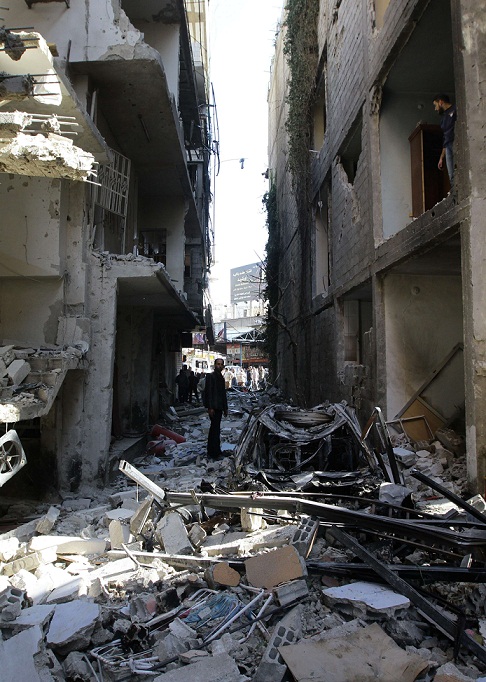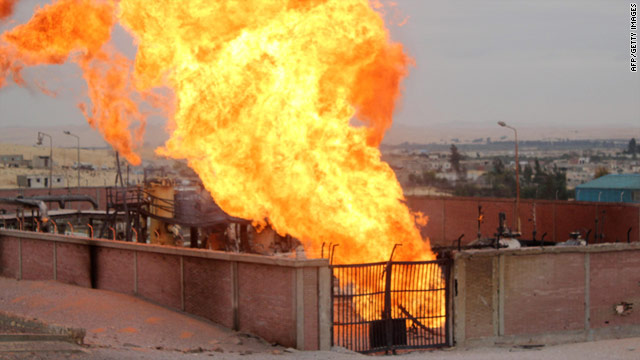
By Khalaf Ahmad Al-Habtoor
Enough sitting around hoping for miracles! Enough waiting for the United States or its Western allies to cleanse the Arab world from the growing cancer of terrorism! Are Arab countries waiting until ‘Islamic State’ fighters knock down their citizens’ doors in what still remains of Arab-controlled territories before acting in a meaningful fashion?
Almost every Arab country is under threat, and those who have succeeded in preventing “Daesh” from penetrating their borders are being surrounded and infiltrated. The latest assessments suggest that “Islamic State” is now based in 12 countries, and is affiliated with extremist groups in others.
Whereas the international community, including much of the Arab world, has adopted a laid-back attitude to this menace, GCC countries are the only ones treating the threat with the gravity it requires. GCC states are investing their armies, their weaponry and billions of dollars in the fight. And it is beyond time that other Arab countries showed solidarity with their Gulf allies, and participated in the battle against this danger to the entire Arab nation with full force.
I am appalled that, so far, foreign powers have done little to amputate “Islamic State’s” fast-growing limbs, or prevent its recruiters from polluting young minds, not only in the MENA region, but also in European democracies where they use laws guaranteeing freedom of expression to distribute their propaganda leaflets. The US State Department estimates that 22,000 foreign fighters from 100 countries have joined “Islamic State”. That fact alone should ring emergency bells loud when many battle-hardened radicals will return home one day consumed with hatred for all things Western.
Looking at a map of the Middle East nowadays, one sees a horror story of bloody conflict, consuming Libya, the Sinai Peninsula, Yemen, Syria and Iraq. When viewed as a whole, the scenario appears so unreal that it is difficult for our minds to take it in. How is it possible that in the 21st century heads are being sliced-off, women are being enslaved and swapped for weapons and thousands are being executed, face down on the ground! People are being beheaded for the ‘crime’ of swearing!
It stretches belief to be told that half of Syria and over a third of Iraq have been taken over by crazies who have disgraced the noble word ‘Caliphate’ that speaks of a Golden Age of pure Islam, when scholars flocked to Baghdad’s ‘House of Wisdom’ to share their knowledge and Arabs led the world in the fields of science, mathematics, medicine, architecture, law and philosophy. The four Rightly Guided Caliphs, who followed in the footsteps of the Prophet (PBUH) must be turning in their graves.
And now “Islamic State” is gaining ground in Libya and controls the cities of Misrata, Sirte and Harawah along the Mediterranean coast between the capital, Tripoli, and Benghazi. Its aim is to control the country’s oil facilities and related ports to feed its treasury that is already flush with profits from energy sales. While we are dissuaded against confronting the terrorists militarily by the US and the UN in favour of talks, “Daesh” is intent on grabbing Libyan oilfields to increase their wealth and influence.
For most of us those images are so divorced from our own experience that there is a tendency to think it cannot happen to us. It is like a scary film that is over once we turn off our televisions. But this is no film, even though; if no action is taken, a real life version will be coming to theatres – and squares and streets – near to you soon.
What has our reliance on the US-led coalition brought us? President Barack Obama trumpets its successes in Iraq, but any gains it has made on the battlefield have been reversed. Air strikes just won’t cut it because the terrorists secrete themselves within terrified civilian populations and, for some mysterious reason, even when they are out in the open, driving around in convoys, they have rarely been targeted.
Iraq’s Prime Minister, Haider Al-Abadi, blames the Obama administration for not doing enough in terms of air cover and intelligence sharing. It is no wonder conspiracy theories amount – ranging from the feasible to the absurd – speculating upon the reasons behind the US President’s lack of commitment.
I had hopes that the Counter-ISIL Coalition Conference, held on 2 June in Paris and attended by the foreign ministers of 22 countries, would come up with a joint solution, a new strategy. But there was no dramatic announcement. Unbelievably, those nations have chosen to tackle the problem in the same old way, despite the fact their efforts so far have been dismal failures. In other words: ‘It is not working, but let us carry on as usual and hope for the best.’
In essence, the US and the UK expect the useless, partisan Iraqi Army partnered with ragtag Shi’a militias to finish the job. I suspect those militias have been busier killing Sunnis and torching their homes than defeating “Daesh” and this is exactly why many of the Sunni tribes in Anbar, some of which worked with the Iraqi government to drive out Al-Qaeda, have reached the conclusion that “Islamic State” is the better of two evils.
Syria was hardly discussed during that meeting. There is no international resolve to defend the long-suffering Syrian people from the regime or from “Islamic State”, which is well dug in. What kind of policy is that when they are aware that even if the coalition could succeed in driving “Daesh” out of Iraq, it would cross the border to regroup and rearm?
This madness has gone on long enough. Maybe Western leaderships can bury their heads to the danger; there are many miles and oceans separating their respective countries from “Islamic State”. But we who live in the Arab world cannot afford to be lax, because the enemy is on our doorstep, biding its time to get a foot in the door.
I am forced to conclude that Arab lands have been targeted by a conspiracy, in which multiple foreign countries are aligned against us, cynically using religious fervour as a tool to wage war against us. Unless we face up to this fact, we are lost. But it is not too late to block such plots delivering their end goal, which is to carve up our countries into weak defenceless entities.
I salute the leaders of the GCC for their efforts to guard their countries, as well as neighbouring Arab states, but this fight should not be on our shoulders alone, it requires Arab partners as well as non-Arab nations to join hands with us. The GCC is doing everything it can to keep its people safe and all credit must go to our GCC leaders.
The immediate short-term solution is for Egypt, Morocco, Jordan and the GCC States to speed-up the creation of a sizeable joint army, composed largely of well-equipped land forces, supported by air power and artillery and tasked with eradicating “Daesh” and various pro-Iranian Shi’a militias.
If there is any hesitation to implement a timely intervention on the advice of the very world powers seeking our devastation, we will be contributors to the sealing of our own fate. The second stage would be to seal all borders with Iran to thwart its hegemonic ambitions.
A parallel short-to-medium term objective should be to reform educational systems so as to produce knowledgeable and enlightened populations able to think for themselves rather than falling for self-interested propaganda disseminated by unscrupulous individuals and groups. Poor quality education equals ignorance and those who capitalise on ignorance find fertile soil in which extremism flourishes and terrorists are bred. We must pull out all the stops to battle false messages that radicalise our youth and discredit our faith in the eyes of the world.
Both Muslim and non-Muslim states should stand with the GCC to fight this alien sickness that is tearing our region apart. He who hesitates is lost and as long as the world chooses debates over decisive action, we will all be lost in a region where brain-diseased barbarians call the shots.
Khalaf Al-Habtoor is a businessman and chairman of Al Habtoor Group. Al Habtoor Group is a Dubai based cooperation with extensive business interests in the region and worldwide, including: hospitality, education, automotive and real estate


